Ever since Antonín Dvořák arrived in 1892 to head the National Conservatory of Music, famous composers have streamed into New York City. With its sublime intensity, glamour and grit, New York has nourished generations of foreign- and native-born luminaries, serving their music with some of the world’s greatest venues including Carnegie Hall and the Metropolitan Opera.
A young composer in today’s New York might opt for a neighbourhood like Jackson Heights, Queens or Bedford-Stuyvesant, Brooklyn, yet in the age of Mahler, Rachmaninov and Copland – not to mention of Scott Joplin, Stephen Foster and any number of Broadway, film and jazz composers – it was still possible for most musicians to afford a Manhattan address. There’s plenty to see on this relatively compact urban island, so allow us to take you on a walk around New York’s colourful musical past…
New York composers' homes: UPPER WEST SIDE AND MIDTOWN
1. Duke Ellington 333 Riverside Drive
The bandleader, composer and pianist purchased this Beaux Arts townhouse in 1961, after having previously acquired No. 334, next door, where his sister and her husband lived. Ellington used the mansion, with its mahogany-panelled living room, as the headquarters for his publishing company and for Sunday jazz salons. Before Ellington, the author Saul Bellow lived and wrote his 1956 novella Seize the Day here. The adjacent West 106th Street was named Duke Ellington Boulevard in 1977, after his death.
2. Sergei Rachmaninov 505 West End Avenue
After four years at 33 Riverside Drive, Rachmaninov and his wife Natalia moved in 1926 to stately West End Avenue. It became a kind of Moscow on the Hudson, where Russian was spoken by servants and butlers, and fellow Russian artist émigrés came by to eat caviar and socialise. Rachmaninov composed much of his Fourth Piano Concerto here.
3. Miles Davis 312 West 77th Street
This Renaissance Revival brownstone had served as a Russian Orthodox church before Miles Davis bought it and made it his main residence from roughly 1960-85. He rented out the upper two floors and built a gym and music room in the basement, which was the scene of rehearsals and, later, drug-fuelled debauchery. In his autobiography, Davis recounted an outré renovation in 1970. ‘I wanted everything round, no corners and very little furniture,’ he wrote. An interior designer added faux marble, Mediterranean-style arches and blue carpeting. In 2014, this block of 77th St was rechristened Miles Davis Way.
4. Leonard Bernstein The Dakota (1 West 72nd Street)
The Dakota (pictured top) was a fashionable haunt for wealthy bohemian actors and writers when the Bernstein family arrived in 1974. Their move from the stodgier East Side was symbolic: the decision was reportedly made after a friend, pianist and conductor Christoph Eschenbach, showed up in jeans and a leather jacket and was sent to the service entrance. The Dakota apartment was smaller but offered Central Park views, high ceilings and a homey music room and library.
5. Gustav Mahler The Majestic (115 Central Park West)
In 1907, Mahler rented an 11th floor suite in the Hotel Majestic with commanding views over Central Park. One afternoon, the composer was seated at one of his two grand pianos when a drumming sound on the street drew him to the window. It was a funeral procession for a fallen firefighter. Alma Mahler later reported that her husband echoed the muffled drumbeat in his Tenth Symphony. The suite was evidently not to the Mahlers’ liking, and they decamped to the Hotel Savoy on Fifth Avenue.
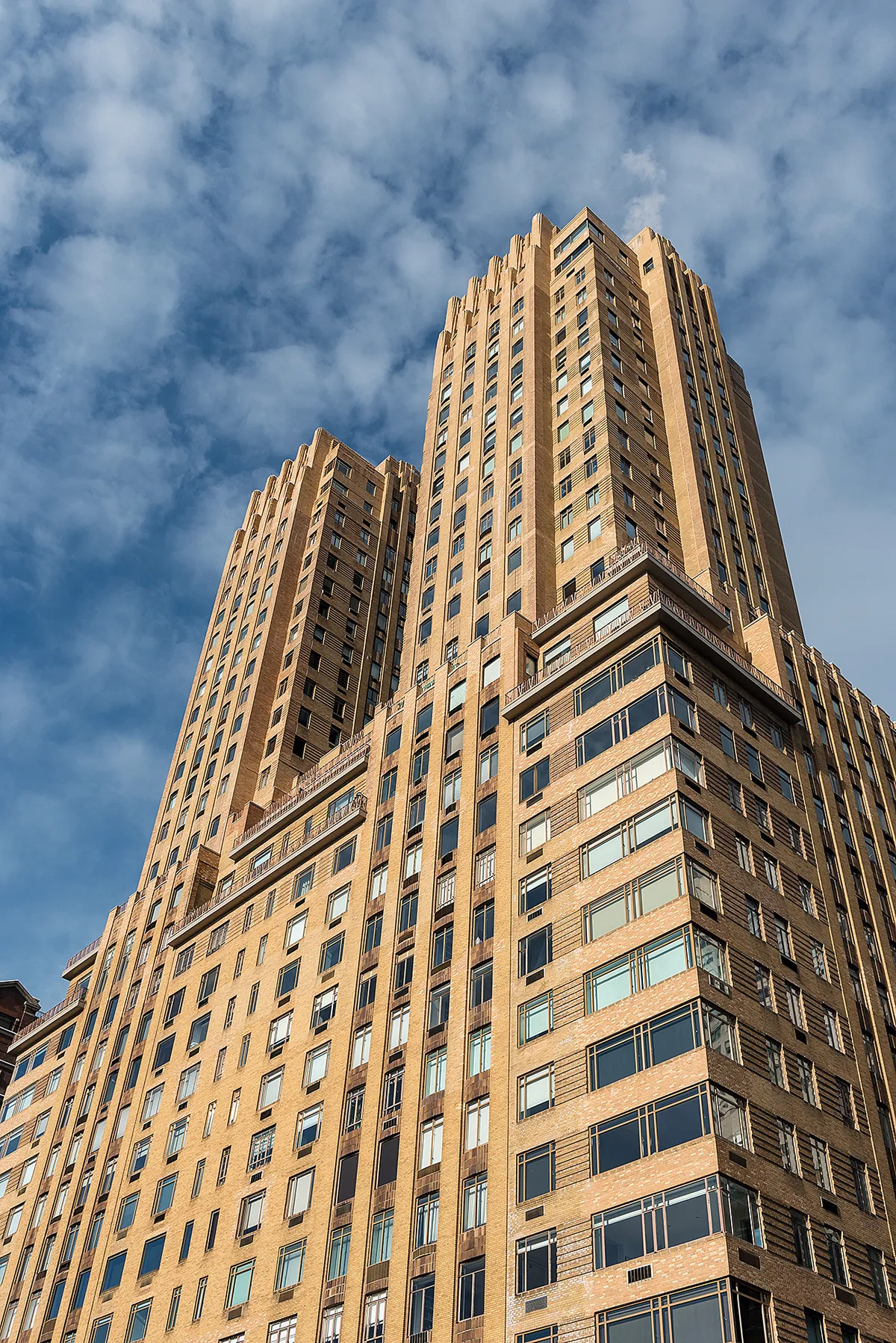
6. Igor Stravinsky The Ansonia (2107-2109 Broadway)
With its mansard roofs, towers and Parisian-style balconies, the Beaux Arts Ansonia is easily Broadway’s most extravagant apartment building. Its enormously thick walls, designed for fire protection, made it popular with countless musicians during the 20th century.
Igor Stravinsky stayed here on and off in the 1930s. Fellow residents recalled seeing him draped in an enormous travelling coat and a cap made for him by Coco Chanel. The Ansonia’s guests over the years included Rachmaninov, plus tenor Enrico Caruso and conductor Arturo Toscanini.
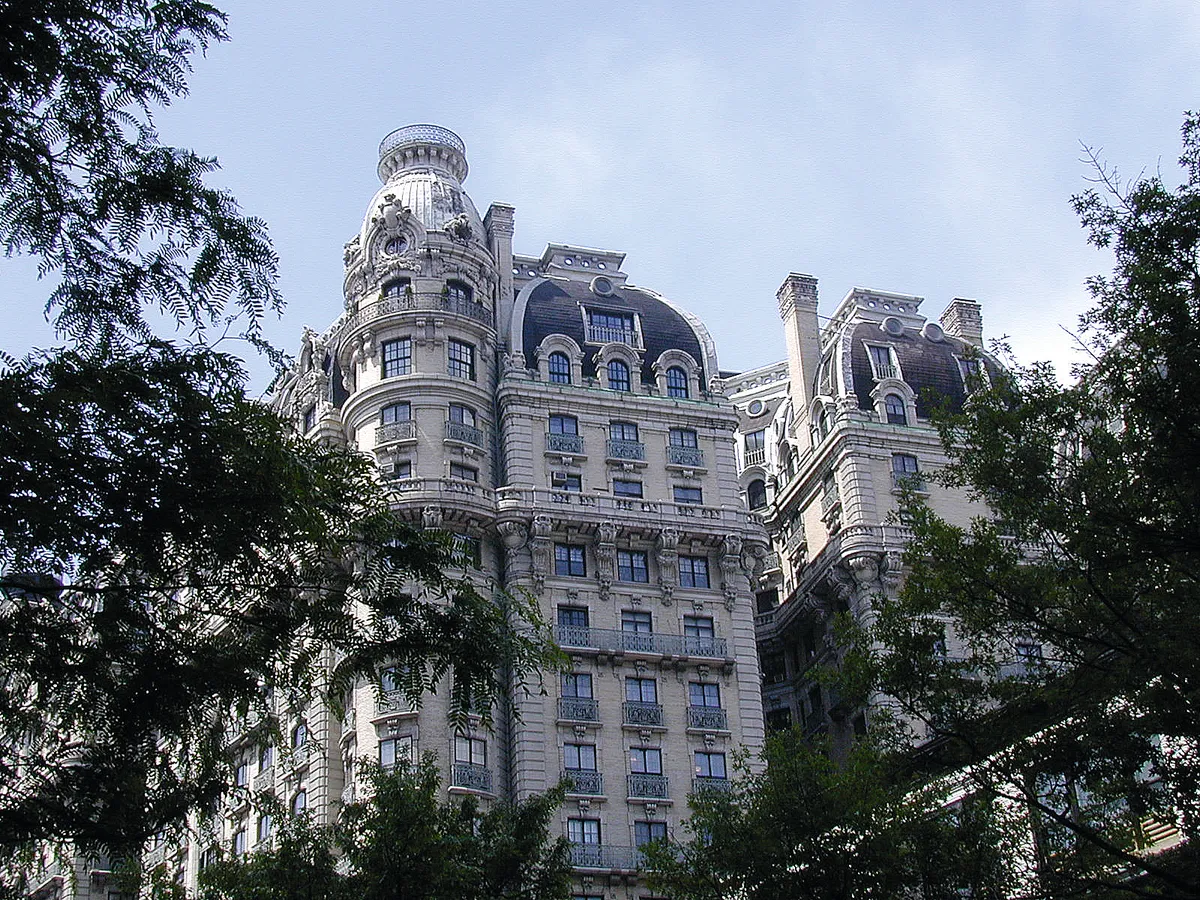
7. Charles Ives 65 Central Park West
In 1898, Charles Ives moved in with half-a-dozen other young bachelors, mostly fellow Yale alumni, to an abode they ironically called the ‘poverty flat’. While holding day jobs in the insurance industry, the composer wrote The Unanswered Question and Central Park in the Dark. He was also dubbed the ‘disturber of the peace’, because of the time he spent loudly hammering at the piano. He married and moved out in 1908.
8. Aaron Copland The Empire Hotel (115 West 63rd St)
When the Brooklyn-born Aaron Copland moved into the Empire Hotel in 1936, it was a workaday address, in contrast to the posh Lincoln Center locale of today. His room, number 1040, contained spartan furniture and an upright piano. He ate meals at nearby cafeterias and greasy spoons.
After two years, Copland also rented a loft at nearby 113 West 63rd Street. ‘It was a novelty before the time when composers and artists sought out lofts to live and work in,’ he later wrote. Copland kept both spaces until 1947.
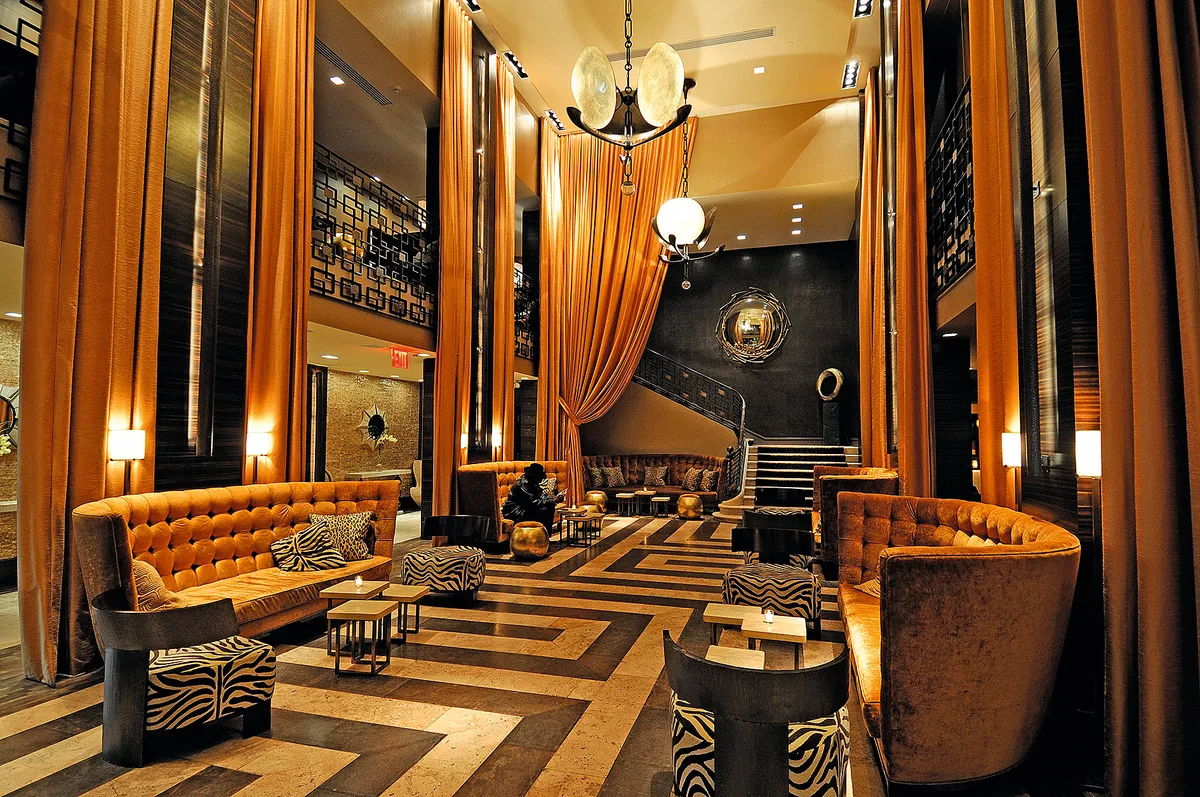
9. Emma Steiner 30 West 61st Street
The Baltimore-born Emma Roberto Steiner (c. 1856-1929) was one of the first American women to make her living as a conductor. She composed light operas (The Little Hussar, Fleurette), orchestral and piano pieces and songs, though a warehouse fire destroyed many of her scores.
After joining the gold rush in Alaska, Steiner returned to New York. In the 1920s she conducted her music at the Metropolitan Opera, but it reportedly passed her up for a full-time post because of her gender. Her NYC apartment was turned into a condominium building.
10. Amy Beach 353 West 57th Street
When the pioneering Boston composer Amy Beach moved to New York in 1930, she settled in an 11th floor studio at the American Women’s Association’s residence hall for women. It suited her well, with practice rooms on the top floor, and ballroom, library and parlours on the lower levels. Because of her age and social standing, the 63 year-old was allowed to host both male and female visitors. From her piano, Beach would watch ocean liners docking along the Hudson River.
11. Béla Bartók 309 West 57th Street
Béla Bartók and his wife Ditta lived at several New York addresses before settling into this midtown apartment, two blocks from Carnegie Hall, in 1945. A bust and plaque near the entrance mark his stay here. It was a difficult time, marked by neglect, shaky finances and declining health, yet Bartók became friendly with neighbours, including a Hungarian couple who owned a harpsichord. He wrote his Viola and Third Piano concertos here; the latter was left incomplete when he died that same year.
New York composers' homes: UPPER EAST SIDE
12. Alma Mahler 120 East 73rd Street
Alma Mahler spent the final 13 years of her momentous life in New York, and in 1952 bought four adjoining apartments in this townhouse. Photographs show rooms stuffed with family memorabilia – the paintings of Oskar Kokoschka and Emil Jakob Schindler, the scores of Gustav Mahler and the manuscripts of Franz Werfel. A grand piano occupied one corner. Here she held court for artistic royalty.
13. George Gershwin 132 East 72nd Street
Gershwin spent most of his adult life on the Upper West Side. Yet his final home (1933-36) was located across Central Park, a 14-room duplex near Lexington Avenue. The sprawling bachelor pad provided room for his art collection, three Steinways and a specially designed desk big enough for orchestral manuscript paper. He also had a phone line to Ira Gershwin, across the street at 125 East 72nd Street.
14. Kurt Weill 231 East 62nd Street
Fleeing Nazi Germany in 1935, Kurt Weill and his wife Lotte Lenya moved to New York, living first at the St Moritz Hotel before settling into this two-bedroom duplex in 1937, using the proceeds from work on Hollywood films. He went on to write hit musicals here, including Knickerbocker Holiday (1938) and Lady in the Dark (1940).
New York composers' homes: DOWNTOWN
15. Antonín Dvořák 327 East 17th Street
In a pattern familiar to New York real estate, the Italianate row house where Dvořák lived from 1892-95 was demolished in 1991 after a failed preservation battle. In its place came a nondescript hospital building. Dvořák by all accounts thrived in the five-room flat, composing his New World Symphony there. The house faced Stuyvesant Park, where in 1997 a bronze statue of the composer by sculptor Ivan Meštrović was placed at its northwest corner.
16. Elliott Carter 31 West 12th Street
From 1946 until his death in 2012, aged 103, the Pulitzer Prize-winning composer lived with his wife in this two-bedroom apartment north of Washington Square Park. The building ‘felt neither grand nor, despite its Village location, bohemian,’ wrote composer David Schiff in an essay on Carter’s website.
Neighbours were a mix of musicians and university professors and ‘the apartment had the genteel shabbiness of academic digs’. When it was put up for sale, his Steinway was part of the $2.8 million price tag.
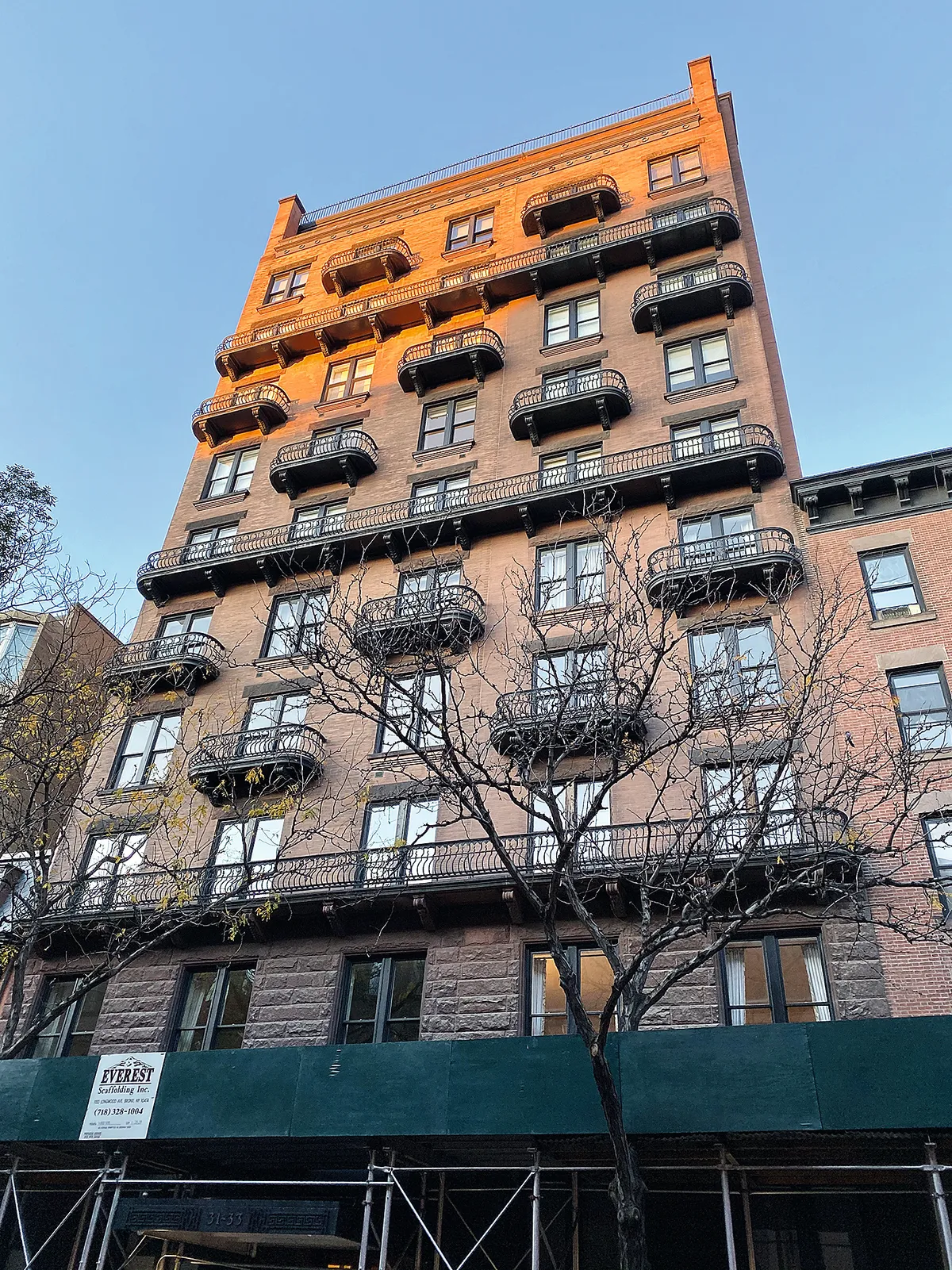
17. John Cage 107 Bank Street
John Cage and his partner, the dancer Merce Cunningham, moved into a studio in the West Village in 1971. A New York Times critic described the space as ‘ascetically spare but aesthetically pleasing, with lots of plants and greenery’. Sensitive to sound, Cage complained to his landlady about her clattering typewriter and once went to confront his next-door neighbours about their loud music. It turned out that they were his friends, John Lennon and Yoko Ono.
18. Astor Piazzolla 313 East 9th Street
Astor Piazzolla’s family lived in New York twice during his childhood, the second time in this East Village tenement building. ‘The area where we lived was known as Little Italy,’ the Argentina native wrote in his memoir. ‘Nearby we had the Poles, the Russians and the Romanians.’ Piazzolla attended Maria Ausiliatrice, a Catholic school ‘where the gangsters' sons went’, and he spent off-hours learning the bandoneon.
19. Edgard Varèse 188 Sullivan Street
The walls of this Greenwich Village townhouse, where the maverick French composer lived from 1925-65, were lined with paintings by Léger, Miró, Calder and Duchamp – all gifts from the artists themselves. ‘Varèse was the most amazing guy,’ Alexander Royer, a neighbour, told the New York Times in 2016. ‘He used to come by our house, and he’d never ring the doorbell. He’d just hit things with his cane. It was the sonic hello.’
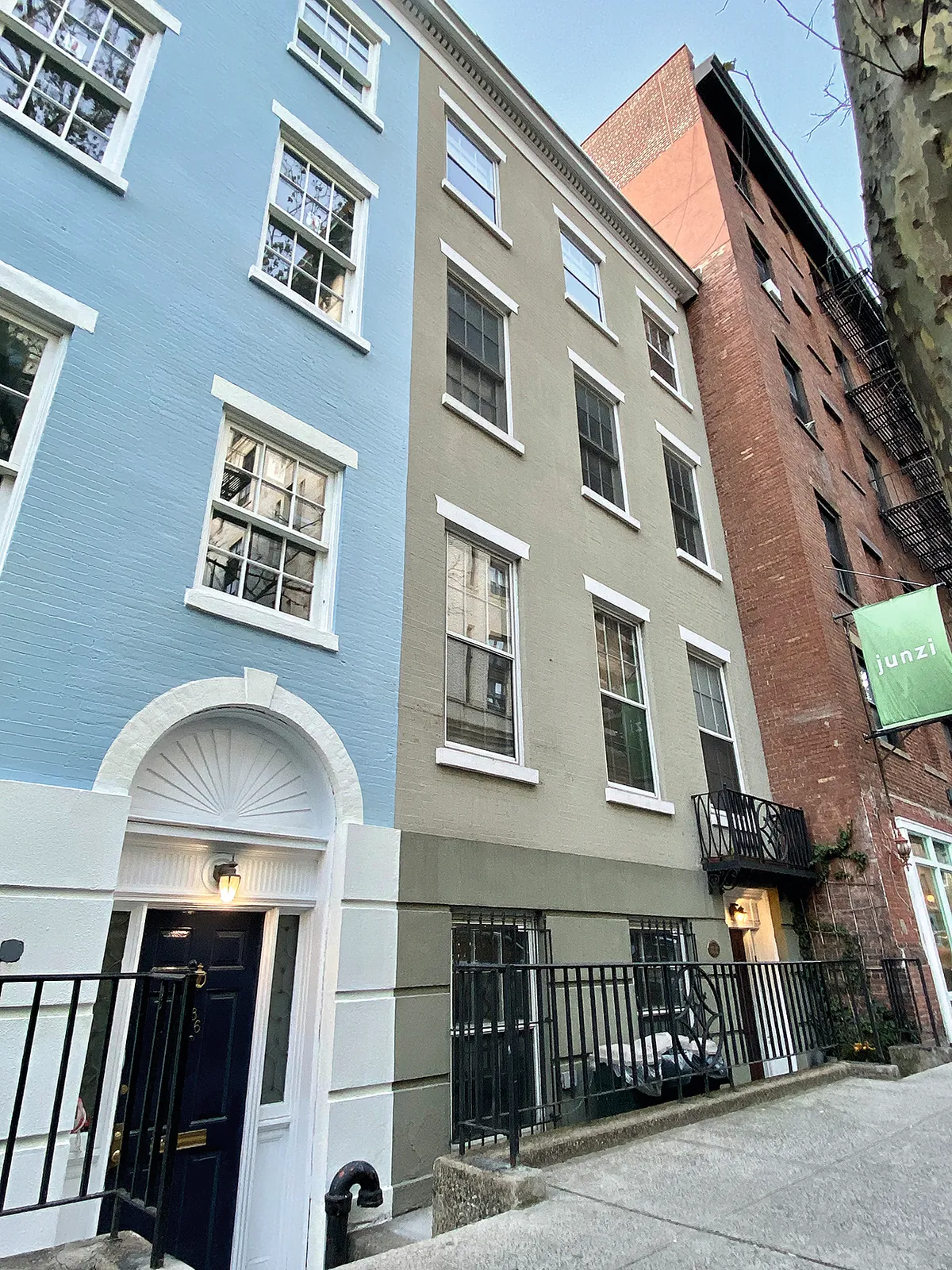
BROOKLYN
20. Benjamin Britten 7 Middagh Street
In 1940, Britten and his partner, the tenor Peter Pears, moved into this legendary bohemian brownstone at the northern tip of Brooklyn Heights. Their housemates included the poet WH Auden and high-society stripper Gypsy Rose Lee.
Amid a steady stream of guests, Britten and Auden worked on the operetta Paul Bunyan, but Britten soon grew tired of endless partying and with Pears fled for Long Island. By 1945, the house was razed for the Brooklyn-Queens Expressway.
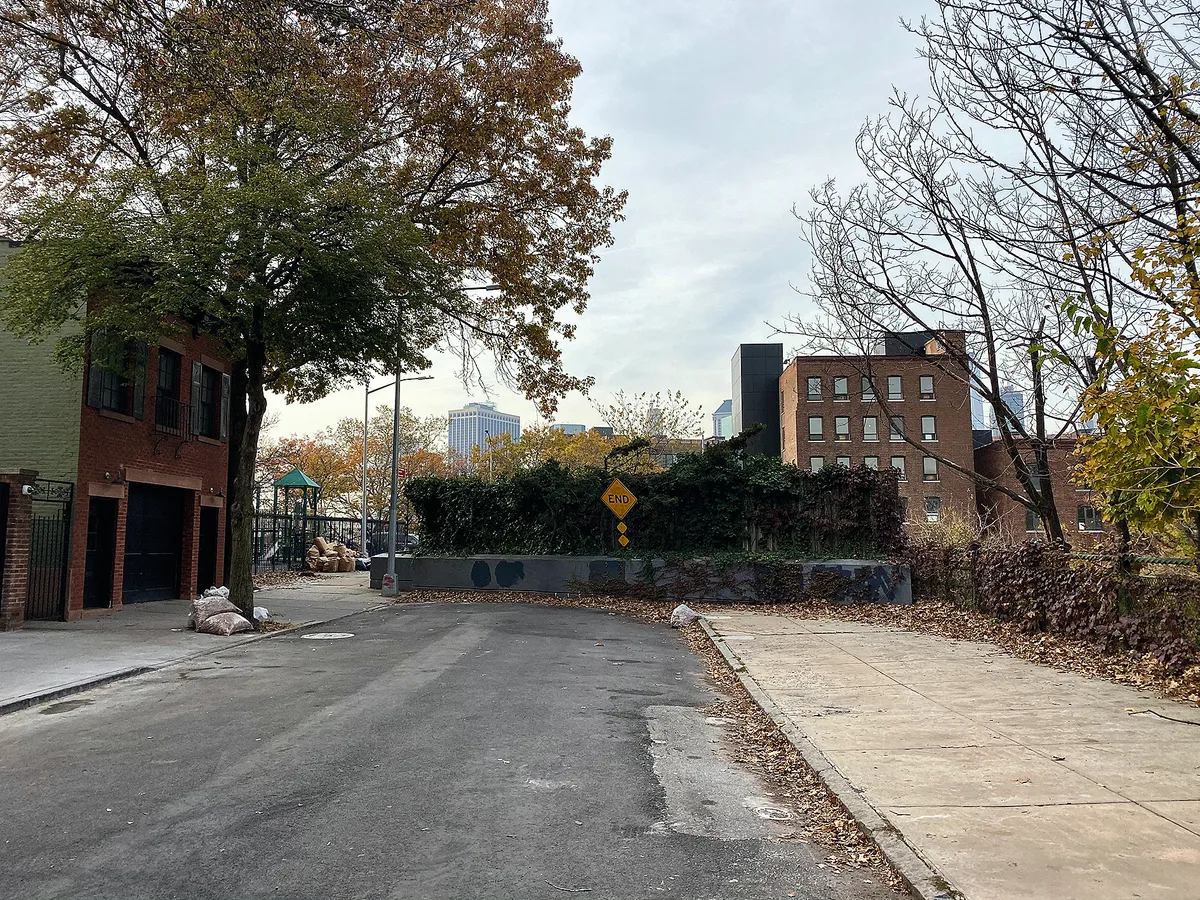
QUEENS
21. Louis Armstrong 34-56 107th Street, Corona
While many noted jazz musicians have favoured Manhattan, Armstrong opted for a two-storey brick home in Corona, Queens. With his fourth wife, Lucille, he lived in this working-class area from 1943 until his death in 1971. ‘We don’t need … some big mansion with lots of servants and yardmen and things,’ Armstrong once said. It became a museum in 2003, preserving exuberant design touches such as a turquoise kitchen and an all-mirrored bathroom.
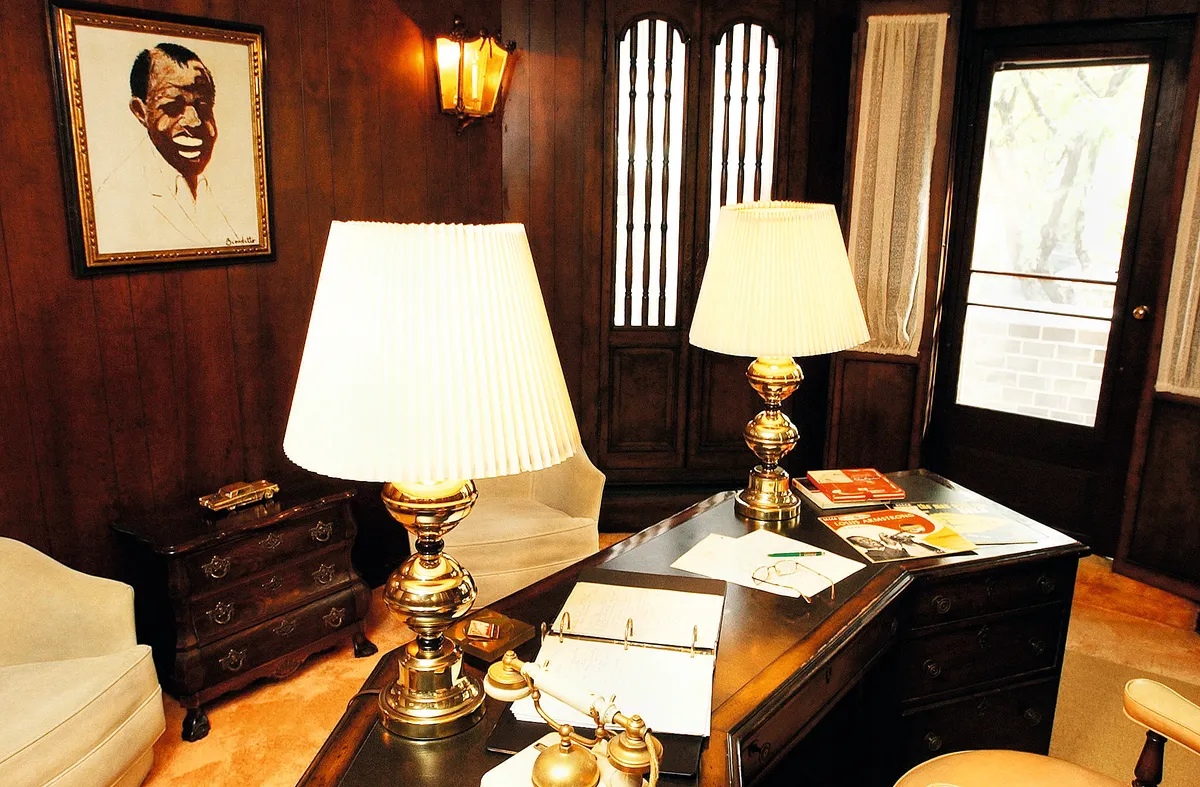
This article first appeared in the May 2020 issue of BBC Music Magazine. Words by Brian Wise.
